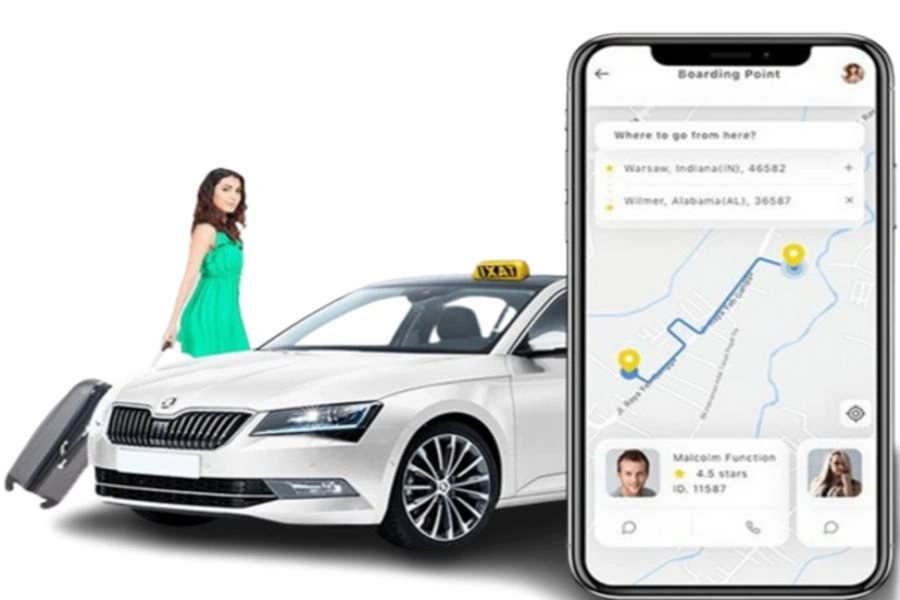The ride-sharing economy has become a staple in the transportation industry, offering flexibility, cost efficiency, and convenience to users worldwide. As we step into 2025, several economic, technological, and societal shifts are creating the ideal environment for entrepreneurs and businesses to enter the ride-sharing market. If you’ve ever considered launching your own platform, now is the time to seriously consider ride sharing app development.
From smart cities to growing sustainability trends, the landscape is perfectly aligned for new entrants in the ride-sharing domain. This article explores why 2025 presents an optimal opportunity to build your own ride-sharing app, what trends support this growth, and how carpooling app development services can be your competitive edge.
The Growing Demand for Alternative Transportation
In 2025, urban congestion, rising fuel prices, and the growing cost of vehicle ownership are driving more people to seek alternative transportation methods. Traditional taxi services are often expensive and inefficient, while public transportation doesn’t always meet the demands of modern urban life. This has led to a surge in demand for ride-sharing and carpooling solutions.
Consumers are looking for platforms that offer real-time availability, route flexibility, affordability, and safety. Building a ride-sharing app that meets these demands allows businesses to tap into a large and growing customer base. Whether it’s daily commuting, long-distance travel, or even intercity rides, ride-sharing apps are now seen as a necessity rather than a luxury.
Technological Advancements Enabling Smarter Solutions
Technology in 2025 is more robust and accessible than ever before. Advances in AI, machine learning, GPS accuracy, real-time tracking, and cloud computing provide the ideal infrastructure for modern ride sharing app development. These technologies make it easier to match drivers with passengers efficiently, ensure safe navigation, and offer advanced features such as automated fare splitting, digital wallets, and predictive traffic routing.
Moreover, integration with electric vehicles (EVs) and autonomous driving technologies is no longer a distant concept. Ride-sharing apps can now be designed with future readiness, supporting features that allow for EV monitoring, carbon footprint tracking, and integration with smart city infrastructure.
For businesses, this means that building an app isn’t just about offering rides—it’s about building a smart, scalable platform that can adapt to future innovations.
Favorable Regulatory Environment
Several governments around the world are beginning to recognize the value of ride-sharing and carpooling services as sustainable transport solutions. Cities are adopting regulatory frameworks that favor shared mobility to reduce traffic congestion and environmental pollution.
In 2025, incentives for green transport and shared mobility are more widely available. From tax benefits to exclusive access lanes for shared rides, the regulatory landscape is more supportive of startups in this space. Compliance processes are also becoming more transparent, allowing businesses to launch and scale more efficiently.
This regulatory momentum makes now an opportune time to invest in ride sharing app development, as future changes may bring stricter controls or increased competition.
Rising Interest in Sustainability and Carpooling
The global focus on sustainability is reshaping consumer preferences and corporate responsibilities. Businesses and users alike are opting for solutions that help minimize their environmental footprint. Carpooling, in particular, has become a key solution in reducing the number of vehicles on the road.
By offering carpooling features within your ride-sharing app, you not only align your brand with environmental values. But also, appeal to a growing demographic that prioritises sustainability. Carpooling app development services can help integrate intelligent matching systems that connect passengers.
This increased demand for sustainable solutions offers a compelling reason to develop an app that doesn’t just serve a need but contributes to a larger purpose.
Expanding Market Opportunities in Underserved Regions
While major urban centers have seen significant growth in ride-sharing, many rural and semi-urban regions remain underserved. In 2025, the expansion of internet access, mobile penetration, and digital literacy in these areas opens up new market opportunities.
Emerging economies, in particular, present a high potential for growth, with local transportation challenges still unmet by traditional operators. Entrepreneurs can build region-specific ride-sharing platforms that cater to local languages, payment systems, and cultural nuances.
With the help of experienced carpooling app development services, businesses can create tailored solutions that meet the specific needs of these new markets and gain a first-mover advantage.
Lower Development Costs and Accessible Expertise
One of the most practical reasons why 2025 is the ideal time to start your ride-sharing app is the reduced cost and increased availability of high-quality development services. Global availability of skilled developers and reusable code libraries means you can launch a fully functional app without a massive investment.
Furthermore, ride sharing app development companies offer end-to-end solutions—from UI/UX design to backend integration and compliance support—enabling even non-technical entrepreneurs to build and scale their platforms.
With carpooling app development services, you gain access to specialized teams who understand the nuances of user experience, route optimization, dynamic pricing, and driver verification. These services help ensure that your app is not just functional but also competitive.
Conclusion: Seize the Opportunity in 2025
All the signs point to 2025 as the best time to invest in building your own ride-sharing app. High demand, technological readiness, supportive regulations, and growing interest in sustainability make it a unique window of opportunity for entrepreneurs and businesses alike.
Whether you’re looking to launch a niche platform for specific regions or a large-scale solution for urban commuters, the infrastructure and consumer mindset are ready. By partnering with experienced ride sharing app development teams and leveraging carpooling app development services, you can enter the market with a feature-rich, scalable, and future-proof platform.
The future of mobility is shared, smart, and sustainable. And 2025 is your moment to be part of that transformation.
